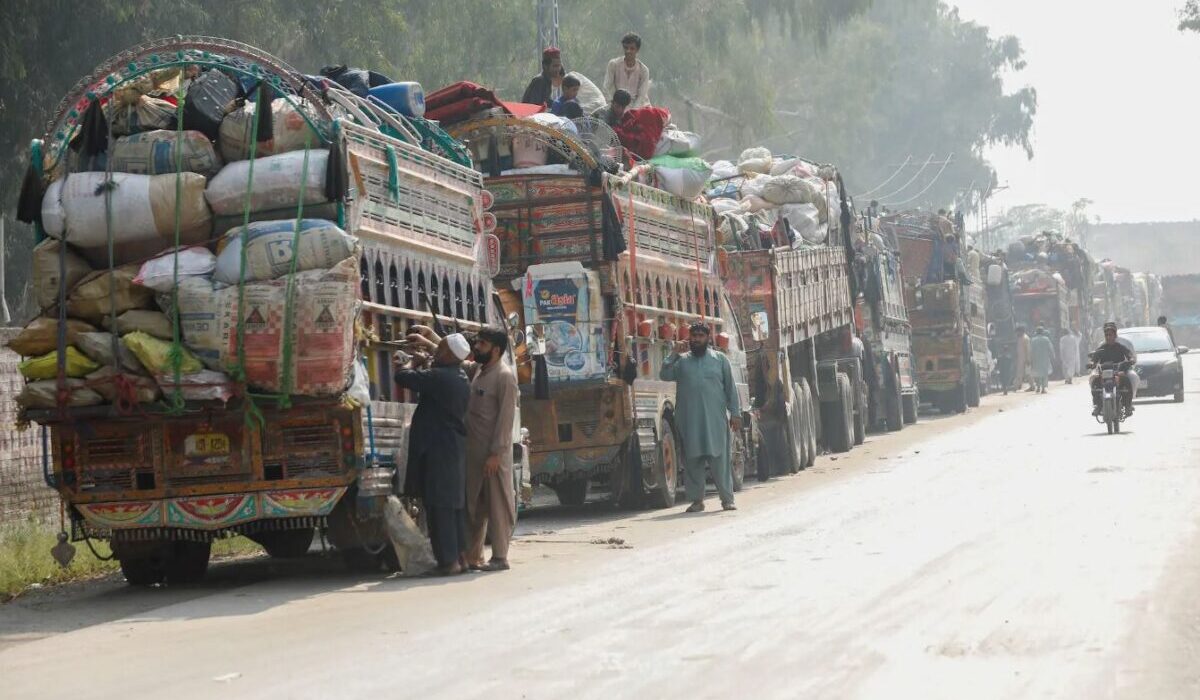The Pakistani government is using threats, abuse, and detention to coerce Afghan asylum seekers without legal status to return to Afghanistan or face deportation by November 1, 2023, Human Rights Watch said Tuesday.
Many Afghans facing potential deportation are awaiting resettlement to countries such as the United States, United Kingdom, Germany, and Canada, as indicated by the watchdog organization.
On October 3, Pakistan’s Interior Ministry declared that all migrants residing without legal status had 28 days to leave voluntarily or face deportation. This broad call for mass deportation has triggered a surge in police abuse against Afghans, including harassment, assault, and arbitrary detention. Although not explicitly stated, the chances for Afghans slated for deportation to challenge this action are slim, according to the organization’s statement.
Fereshta Abbasi, Afghanistan researcher at Human Rights Watch, expressed grave concern over Pakistan’s announced deadline and its dire consequences, stating, “Pakistan’s announced deadline for Afghans to return has led to detentions, beatings, and extortion, leaving thousands of Afghans in fear over their future. The situation in Afghanistan remains dangerous for many who fled, and deportation will expose them to significant security risks, including threats to their lives and well-being.”
Khaliq Atifi, an Afghan refugee in Islamabad and a former sports journalist in Kabul, reported that even Afghans registered with the United Nations High Commissioner for Refugees (UNHCR) have not been immune to detention or deportation since the announcement.
“There are police checkpoints everywhere. Even if you have a valid visa, you will still be transferred to the police station, and in most cases, you need to pay a bribe to get released.” In many instances, Afghan refugees have had to pay bribes ranging from 10,000 to 40,000 Pakistani rupees ($36 to $144) to the police,” he explained.
Zarmina Rafiee, a women’s rights activist associated with the Afghan Red Crescent Society in Afghanistan, highlighted the mental and emotional toll on Afghan refugees living in Pakistan who face possible deportation.
“Most courses and opportunities for Afghan refugees, especially children, are closing down, and people can’t shop freely out of fear of deportation. We can’t sleep, as we have heard that the police raid the houses during the night and ask for documents,” she said.
Nazir Ahmadi, who had worked on NATO-funded projects in Afghanistan and had been in Pakistan for the past 18 months, voiced his despair, stating, “I have nothing there. I have lost everything. If I go back to Afghanistan, there’s also no guarantee for me to stay alive.”
Numerous Afghan nationals who arrived in Pakistan after the Taliban’s resurgence in August 2021 had been encouraged to apply for resettlement programs in various countries.
However, the expiration of Pakistani visas and lengthy resettlement processes have left them in a state of limbo, making them vulnerable to detention and deportation.
Elias Shafaee, a former worker on a US-funded project in Afghanistan, shared his frustration, saying, “Most of these visa processes require you to move to a third country. For a [temporary] US visa, I had to move to Pakistan. Since then, I have been waiting for 15 months with no progress from the US Embassy, and now Pakistan wants to deport me to Afghanistan.”
Afghan women and girls have faced additional obstacles in obtaining resettlement, with destination countries often prioritizing the assistance of Afghan men who contributed to their military efforts. Niloofar Neda, a doctor and civil society activist, expressed her constant fear of deportation, stating, “I live in fear that I can be deported at any time. I am waiting for the US embassy to process my visa, which has already taken more than a year.”
Parwana Salihi, who worked for more than a decade with organizations dedicated to women’s empowerment in Afghanistan, left the country after receiving threats following the Taliban’s resurgence. She said, “I had to leave Afghanistan because it wasn’t safe for people like me. And now I live in this fear that I could be deported back to Afghanistan at any time.”
On October 27, the UNHCR raised concerns about Pakistan’s deportation plan and called for the protection of Afghan refugees in Pakistan. Since Pakistan announced its deportation policy on October 3, the number of Afghans leaving Pakistan, including those who were registered, has surged. As of October 15, about 60,000 had left Pakistan since the announcement. Approximately 87 percent of them, according to UNHCR and the International Organization for Migration, cited fear of arrest in Pakistan as their reason for returning.
Human Rights Watch contended that these deportations violate Pakistan’s obligations under the UN Convention Against Torture and the customary international law principle of nonrefoulement – the prohibition of forcibly returning people to countries where they face a clear risk of torture or other persecution.
The organization emphasized that refoulement occurs not only when a refugee is directly rejected or expelled but also when indirect pressure is so intense that it leaves people with no option but to return to a country where they face serious harm.
Human Rights Watch called on the Pakistani government to cease police abuses against Afghan refugees, rescind the November 1 deportation deadline, and collaborate with UNHCR to resume the registration of Afghan asylum seekers. UNHCR issued non-return advisories in 2021, 2022, and 2023, calling for a bar on the forced return of Afghan nationals.
The organization also urged the governments of the US, UK, Germany, and Canada to expedite the resettlement of Afghans from Pakistan who are particularly at risk, including women and girls, LGBT individuals, human rights activists, and journalists. Abbasi emphasized the need for countries that promised to provide resettlement to at-risk Afghans to press Pakistan to end its abuses and uphold their commitments to resettle Afghan refugees.





